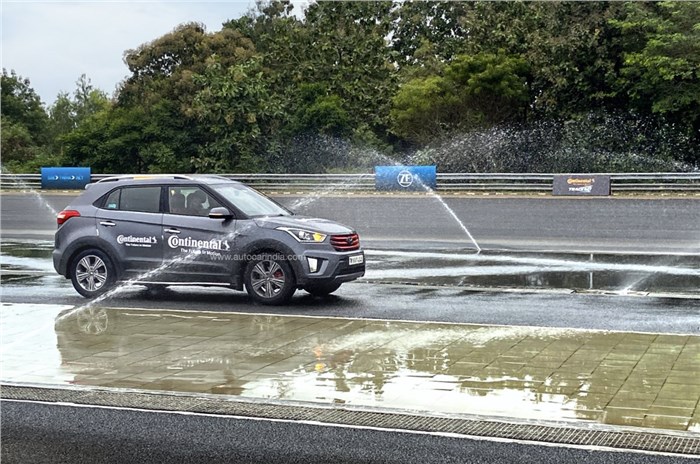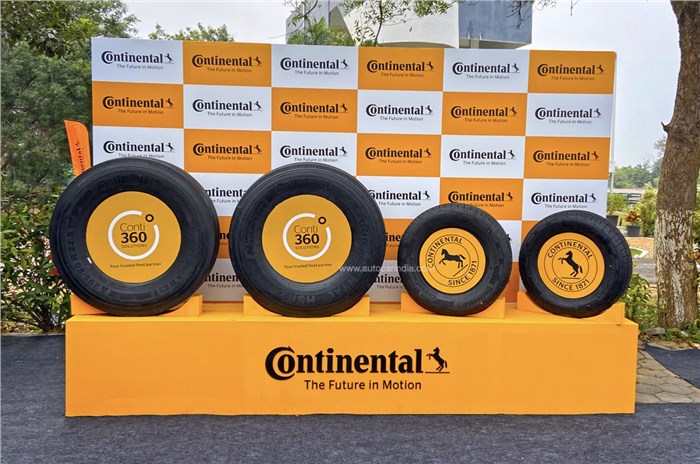A track day spent testing Continental’s new Cross Contact tyres on the Fortuner, Creta and Seltos.
Published On Jan 14, 2024 08:01:00 AM
The latest product on Continental’s India portfolio is the Cross Contact HT tyres for sedans and SUVs, with sizes ranging between 15-18 inches. The tyres, according to the company, are fit for both on- and off-road, and are tailor-made for Indian roads. Continental is, however, currently present only in the aftermarket space in India. In an interaction with Autocar India, Samir Gupta, the company’s India MD, and head of Central Region, BA Tires APAC, says, “The aftermarket business itself is big for us, so we want to establish our footprints there first. Globally, however, we have tie-ups with carmakers like Mercedes-Benz, Ford, MG and others.”
We were in Chennai recently to experience the tyres at the WABCO Proving Ground, and the experience involved braking on a wet track, a handling course and a dry braking test.
The wet brake test

The Seltos stopped at an impressively short distance in the wet at 50kph.
The wet braking test was conducted in a Kia Seltos where we had to accelerate up to 50kph, decelerate as soon as we hit the first set of cones, and brake with all our might when we hit the second set. Now, 50kph might seem ‘slow’, but it can be nerve-racking when you’re braking on a wet surface. The tyres, however, provided enough grip to keep the car rolling in a straight line and coming to a controlled stop. What also helped was the fact that the ABS tech didn’t allow the tyre to lock up.
Handling course

Tyres kept the Creta stable in the handling course.
Next was the handling course and this was a bigger test for tyre grip. The course basically consisted of a set of cones laid out to mark a large circular track with tighter turns within. We had the Hyundai Creta for this part of the experience and the tyres and track seemed to have a divine connection. Despite pushing hard through some of the turns, the Creta tracked through, did not understeer and even felt quite secure rushing through the course.
Dry brake test
We began with the Toyota Fortuner and this was similar to the wet brake test, except here there was no speed limit. Accelerate as fast as you can and brake as hard as possible when you hit the first set of cones, and preferably, stop before the second set of cones. The Fortuner picked up speed impressively and we hit the brakes at 90kph. Being a high-riding SUV, I thought it wouldn’t be able to stop within the stipulated distance, but the brakes did their job and the tyres once again provided a secure grip all through.

The Fortuner took longer to stop from 90kph than the XUV700.
We then had a go in a Mahindra XUV700, and it stopped a good couple of metres behind the Fortuner, but that was more physics at play (the monocoque XUV700 being lighter than the ladder-frame Fortuner).
All in all, it was an amazing day at the track pushing the limits of the car and the tyre, and coming back humbled that that of the tyre far exceeds that of mine.
Copyright (c) Autocar India. All rights reserved.



